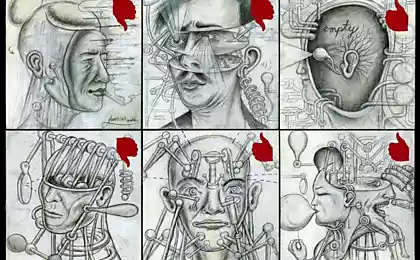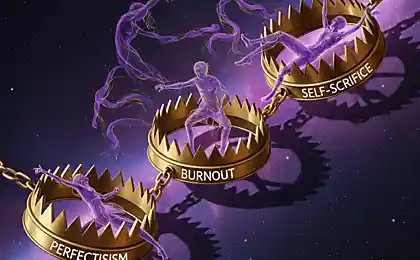201
How to Fight Emotional Burnout Syndrome
Burnout syndrome is a psychological reaction of a person to long-term emotional fatigue, manifested in the loss of interest in life. Such a reaction can “mature” for months or even years. In 1974, the American psychologist Herbert Frudenberger defined CMEA as a problem “born of society and the time in which we live, a constant struggle to fill our lives with meaning.” This state does not go away if it is ignored.”
COMECON can occur in almost any person, and it develops according to the following scenario (although a person does not always pass all the stages):
• the desire to assert itself;
• The decision to work more;
• Neglecting your needs;
• Lack of understanding of the conflict (the person does not understand the root of the problem of their poor health);
Changes in values (losing friends, family, favorite activities, etc.)
Denial of impending problems (cynicism, aggression, and frustration become apparent)
social isolation (at the same time, there is a ground for alcoholism, drug addiction, etc.);
• Significant changes in behavior;
• internal emptiness;
• depression;
COMECON (thoughts of suicide, complete mental and physical exhaustion).
Causes of the CSA
The reason for the occurrence of CMEA is the stress caused by a usually too busy life: a large number of meetings, meetings, projects, unrealistic deadlines for fulfilling obligations, secondary and unnecessary tasks that distract from the main job, as well as many other factors that affect human life in our oversaturated world of information and technology. Stress itself doesn’t usually cause a lot of problems, but in terms of long-term and multiple stresses, each of us has its limits of resilience, and when we cross them, we are on the verge of overwork.

How to fight with yourself or warn him
1. Analyze your motives in life. Usually, teachers, doctors, managers and representatives of other professions, who often and much communicate with people (patients, students, clients, etc., who do not always behave “good”), are forced to behave courteously and politely by duty, without experiencing real love for people. Over time, the incentive (salary, career, etc.) to “love” people weakens or disappears, and a person gives free rein to his real feelings. If this attitude does not change, the person is forced to change his job, hoping that someday he will find himself in a place where it will be necessary to “love” others not so often, or there will be people who will be easy to love. How do you learn to truly love people?
2. Simplify your life. Television, the Internet, mobile phones and other media help us in our work, but at the same time through them comes a lot of useless information for us. It distracts us from our direct responsibilities, takes time and mind, and ultimately gives the impression that we are severely overwhelmed.
3. Set aside time to rest. Give preference to useful physical labor, in which the mind rests: work in the garden or garden, flower breeding, crafts, walks in the park or forest, etc. Rest in the lap of nature has a restorative effect. Avoid watching television or surfing the internet.
4. Follow healthy eating habits. Eat mainly plant foods, avoid stimulants of coffee, tea, alcohol and spicy spices. It is important to consume 6.8 glasses of water daily.
5. Develop regularity habits in life regarding sleep patterns and eating.
6. Don't limit yourself to sleep. The average person needs to sleep 7-8 hours a day.
7. Rest at least once a week. Understanding the need of man in the restoration of spirit, soul and body.
8. Don’t make promises you can’t keep. When we overload ourselves, we become irritable and aggressive because we feel the pressure of unfulfilled commitments.
Source: /users/147























